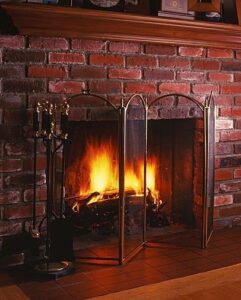When it comes to homeownership, unexpected issues can pop up at the most inconvenient times. This is especially true in Miami, where humidity and weather changes can wreak havoc on your property. That’s where the importance of emergency repairs comes into play. Whether it’s a sudden leak, a power outage, or a broken appliance, knowing how to handle these situations can save you time, money, and a whole lot of stress. In this article, I’ll share some insights on how to deal with emergency repairs effectively and efficiently.
Understanding Emergency Repairs
Emergency repairs are defined as urgent fixes that require immediate attention to prevent further damage or danger. These could range from plumbing issues to electrical failures. The key to managing these situations is understanding what constitutes an emergency. Here are some examples:
- Water Leaks: A burst pipe or a leaking roof can lead to significant water damage if not addressed quickly.
- Electrical Issues: Flickering lights or exposed wires can pose serious safety risks.
- Heating and Cooling Failures: In the sweltering Miami heat, a broken air conditioner can make your home unbearable.
- Appliance Breakdowns: A malfunctioning refrigerator can spoil food and lead to unnecessary expenses.
Recognizing the Signs of an Emergency
Not every issue that arises at home qualifies as an emergency. However, there are telltale signs that signal the need for immediate action. For example:
- Water pooling on the floor or ceiling spots may indicate a serious leak.
- Burning smells or sparks from electrical outlets should never be ignored.
- Extremely high or low temperatures due to HVAC failures can impact your comfort and health.
If you’re ever in doubt, it’s always better to err on the side of caution and call in a professional. Trust me, it’s worth it to avoid a small issue turning into a major disaster.
Steps to Take During an Emergency Repair
When faced with an emergency repair, it’s important to stay calm and follow a systematic approach. Here’s a simple guide you can follow:
1. Assess the Situation
Take a moment to evaluate what’s happening. Is it safe to stay in the house? For example, if there’s a gas leak, evacuate immediately and call the professionals. On the other hand, if it’s just a small plumbing issue, you might be able to troubleshoot it.
2. Shut Off Utilities if Necessary
In many cases, shutting off the water or electricity can prevent further damage. Know where your main shut-off valves are located. This knowledge can be a lifesaver in times of need.
3. Document the Damage
Take photos or videos of the issue for your records and to share with your insurance company if needed. Documentation can facilitate the insurance claim process and help in resolving disputes.
4. Call a Professional
Your best bet is often calling a handyman or repair service that specializes in emergency repairs. In Miami, there are many qualified professionals ready to assist you. Look for reviews and ask for recommendations to find someone reliable.
Preventing Future Emergencies
While it’s impossible to predict every emergency situation, there are steps you can take to minimize the risk of future issues:
- Regular Maintenance: Schedule routine maintenance for your HVAC system, plumbing, and electrical systems. This can catch potential problems before they escalate.
- Invest in Quality Materials: Using high-quality materials during renovations can reduce the chance of future emergencies.
- Stay Educated: Knowledge is power. Learn basic home repair skills so you can handle minor issues yourself.
Common Emergency Repair Myths
There are many misconceptions about emergency repairs that can lead to poor decision-making. Let’s debunk a few:
- Myth 1: “I can fix everything myself.” While DIY is great, some issues require professional expertise.
- Myth 2: “Emergency repairs are always expensive.” While some can be costly, addressing issues early can save you money in the long run.
- Myth 3: “Home insurance covers everything.” Not all repairs are covered, so it’s crucial to understand your policy.
Frequently Asked Questions
What should I do if I discover a leak?
First, shut off the water supply if possible. Then, document the leak and contact a professional plumber to assess and fix the issue.
How do I find a reliable emergency repair service in Miami?
Look for reviews online, ask friends for recommendations, and check if the service has the necessary licenses and insurance.
Are emergency repairs covered by homeowner’s insurance?
It depends on your policy. Some emergency repairs may be covered, while others may not. Always check your insurance details.
What are the most common emergency repairs in Miami?
Common emergencies include plumbing leaks, electrical issues, and HVAC failures, particularly due to the humid climate.
How can I prevent emergencies in my home?
Regular maintenance, using quality materials, and educating yourself about home repairs can help prevent emergencies.
In summary, understanding the significance of emergency repairs and knowing how to react when they occur can make all the difference. By following these steps and being proactive in maintenance, you can keep your home safe and sound.






